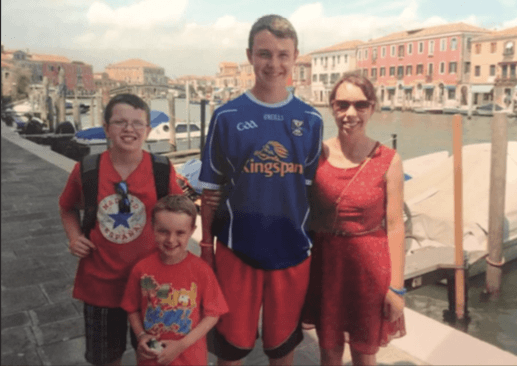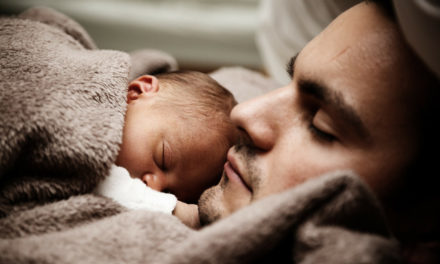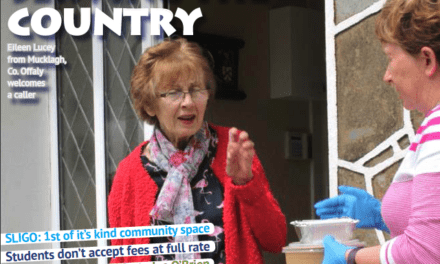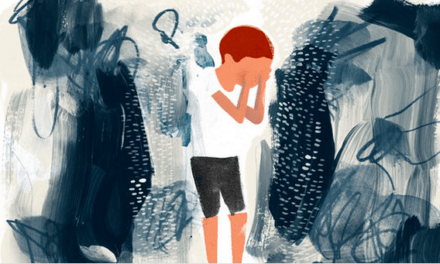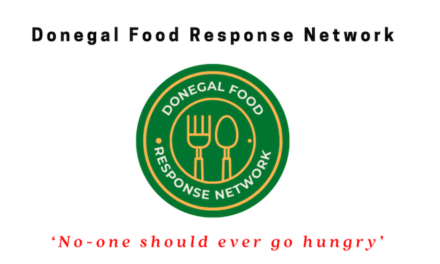As Women’s Aid marks the 16 Days of Action Opposing Violence against Women campaign, the family of Clodagh Hawe launches a fundraising effort for the organisation.
The mother and sister of Clodagh Hawe, who was murdered in her home last year alongside her three sons Liam, Niall and Ryan, have set up a fund in their memory, with all proceeds going to Women’s Aid.
The aim is to raise at least €50,000. “Clodagh was strong and beautiful inside and out, and was so loving,” wrote Clodagh’s mother, Mary Coll, and sister, Jacqueline Connolly on the fundraising page.
“She was warm, loving, bright and capable, and she was bringing her boys Liam, Niall and Ryan up to have those same qualities. We want their deaths to help other women who are living in fear and isolation in their own homes.”
“Please support our fundraising appeal for Women’s Aid. One in five women in Ireland experience domestic abuse and many women are isolated and alone,” wrote Mary and Jacqueline.
Clodagh and her children were killed on 31 August by Clodagh’s husband (and father to the three boys) Alan Hawe, who afterwards killed himself.
Femicide
By December 2016, 209 women had been killed in Ireland since Women’s Aid began recording figures in 1996.
Marking the annual 16 Days of Action Opposing Violence against Women, Margaret Martin, director of Women’s Aid, said: “Femicide must not be accepted as a fact of life. Women should be safe in their homes and in their relationships. And we must recognise the strong connection between the killing of women and domestic violence.”
The organisation’s Femicide Watch shows that a woman in Ireland is most likely to be killed in her own home and by a current or former boyfriend, partner or husband.
Where the cases have been resolved (through the courts or in cases of murder-suicide) 89 women (54%) were murdered by a current or former male intimate partner. Another 54 women (33%) were killed by a male relative or acquaintance, and 21 women were murdered by a stranger.
Meanwhile, figures from the Central Statistics Office show that breaches of domestic violence court orders have nearly doubled in the past 10 years.
Lashing out at those in power who could do more, Sharon O’Halloran, CEO of SAFE Ireland, said, “We can prevent these murders. We can open the doors of our refuges and let people in when they call, instead of turning them away due to a lack of resources.”
Women’s Aid defines the 16 Days of Action Opposing Violence against Women as “an important opportunity to raise awareness and call for changes at an international, national and local level to make women and children safe from abuse.
Local actions
Local actions took place nationwide throughout the 16 Days.
Limerick Women’s Network members gathered to hold a minute’s silence in solidarity with victims of domestic violence. Members of the Circle of Friends group produced a symbolic wreath recording the names of the 209 victims.
The network also launched a booklet listing all the services for women in Limerick city.
The event took place on 7 December in Watch House Cross Library, Moyross, and was attended by members from women’s groups across Limerick.
According to group facilitator Edel Geraghty, the issue of violence against women is one that the women’s network deals with on an almost daily basis. “We come across many women survivors of domestic abuse who have never reported the crime. Statistics say one in four women are affected by this issue but, from our experience, the number is likely to be far higher.”
If you are affected by any of the issues discussed in this article, please contact the Women’s Aid 24hr National Freephone Helpline on 1800 341 900. It operates all year round.

